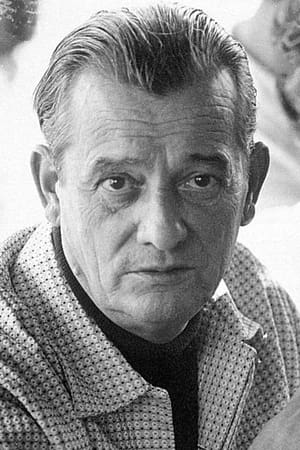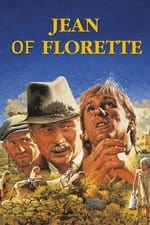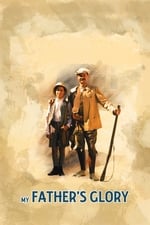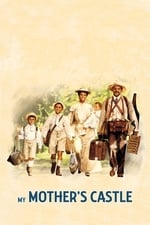Особиста інформація
Відомий (-а) за Сценарій
Кількість робіт 70
Стать Чоловіча
День народження 28 лютого 1895
День смерті 18 квітня 1974 (79 років)
Місце народження Aubagne, Bouches-du-Rhône, France
Також відомий (-а) як
- Marcel Pagnol
- مارسيل بانيول
- 마르셀 파뇰
- 마르셀 파놀
Оцінка вмісту
100
Так! Має чудовий вигляд!
Увійдіть, щоб повідомити про проблему
Біографія
Marcel Paul Pagnol (28 February 1895 – 18 April 1974) was a French novelist, playwright, and filmmaker. Regarded as an auteur, in 1946, he became the first filmmaker elected to the Académie française. Although his work is less fashionable than it once was, Pagnol is still generally regarded as one of France's greatest 20th-century writers and is notable for the fact that he excelled in almost every medium—memoir, novel, drama and film.
Pagnol was born on 28 February 1895 in Aubagne, Bouches-du-Rhône department, in southern France near Marseille, the eldest son of schoolteacher Joseph PagnolA and seamstress Augustine Lansot. Marcel Pagnol grew up in Marseille with his younger brothers Paul and René, and younger sister Germaine.
In July 1904, the family rented the Bastide Neuve, – a house in the sleepy Provençal village of La Treille – for the summer holidays, the first of many spent in the hilly countryside between Aubagne and Marseille. About the same time, Augustine's health, which had never been robust, began to noticeably decline and on 16 June 1910 she succumbed to a chest infection ("mal de poitrine") and died, aged 36. Joseph remarried in 1912.
In 1913, at the age of 18, Marcel passed his baccalaureate in philosophy and started studying literature at the University in Aix-en-Provence. When World War I broke out, he was called up into the infantry at Nice but in January 1915 he was discharged because of his poor constitution ("faiblesse de constitution"). On 2 March 1916, he married Simone Colin in Marseille and in November graduated in English. He became an English teacher, teaching in various local colleges and at a lycée in Marseille.
In 1922, he moved to Paris, where he taught English until 1927, when he decided instead to devote his life to playwriting. During this time, he belonged to a group of young writers, in collaboration with one of whom, Paul Nivoix, he wrote the play, Merchants of Glory, which was produced in 1924. This was followed, in 1928, by Topaze, a satire based on ambition. Exiled in Paris, he returned nostalgically to his Provençal roots, taking this as his setting for his play Marius, which later became the first of his works to be adapted into a film in 1931.
Separated from Simone Collin since 1926 (though not divorced until 1941), he formed a relationship with the young English dancer Kitty Murphy. Their son Jacques Pagnol was born on 24 September 1930. (Jacques later became his father's assistant and subsequently a cameraman for France 3 Marseille.)
In 1929, on a visit to London, Pagnol attended a screening of one of the first talking films and he was so impressed that he decided to devote his efforts to cinema. He contacted Paramount Picture studios and suggested adapting his play Marius for cinema. This was directed by Alexander Korda and released on 10 October 1931. It became one of the first successful French-language talking films. ...
Source: Article "Marcel Pagnol" from Wikipedia in English, licensed under CC-BY-SA 3.0.
Marcel Paul Pagnol (28 February 1895 – 18 April 1974) was a French novelist, playwright, and filmmaker. Regarded as an auteur, in 1946, he became the first filmmaker elected to the Académie française. Although his work is less fashionable than it once was, Pagnol is still generally regarded as one of France's greatest 20th-century writers and is notable for the fact that he excelled in almost every medium—memoir, novel, drama and film.
Pagnol was born on 28 February 1895 in Aubagne, Bouches-du-Rhône department, in southern France near Marseille, the eldest son of schoolteacher Joseph PagnolA and seamstress Augustine Lansot. Marcel Pagnol grew up in Marseille with his younger brothers Paul and René, and younger sister Germaine.
In July 1904, the family rented the Bastide Neuve, – a house in the sleepy Provençal village of La Treille – for the summer holidays, the first of many spent in the hilly countryside between Aubagne and Marseille. About the same time, Augustine's health, which had never been robust, began to noticeably decline and on 16 June 1910 she succumbed to a chest infection ("mal de poitrine") and died, aged 36. Joseph remarried in 1912.
In 1913, at the age of 18, Marcel passed his baccalaureate in philosophy and started studying literature at the University in Aix-en-Provence. When World War I broke out, he was called up into the infantry at Nice but in January 1915 he was discharged because of his poor constitution ("faiblesse de constitution"). On 2 March 1916, he married Simone Colin in Marseille and in November graduated in English. He became an English teacher, teaching in various local colleges and at a lycée in Marseille.
In 1922, he moved to Paris, where he taught English until 1927, when he decided instead to devote his life to playwriting. During this time, he belonged to a group of young writers, in collaboration with one of whom, Paul Nivoix, he wrote the play, Merchants of Glory, which was produced in 1924. This was followed, in 1928, by Topaze, a satire based on ambition. Exiled in Paris, he returned nostalgically to his Provençal roots, taking this as his setting for his play Marius, which later became the first of his works to be adapted into a film in 1931.
Separated from Simone Collin since 1926 (though not divorced until 1941), he formed a relationship with the young English dancer Kitty Murphy. Their son Jacques Pagnol was born on 24 September 1930. (Jacques later became his father's assistant and subsequently a cameraman for France 3 Marseille.)
In 1929, on a visit to London, Pagnol attended a screening of one of the first talking films and he was so impressed that he decided to devote his efforts to cinema. He contacted Paramount Picture studios and suggested adapting his play Marius for cinema. This was directed by Alexander Korda and released on 10 October 1931. It became one of the first successful French-language talking films. ...
Source: Article "Marcel Pagnol" from Wikipedia in English, licensed under CC-BY-SA 3.0.
Сценарій
|
|||||||||||||||
|
|||||||||||||||
|
|||||||||||||||
|
|||||||||||||||
|
|||||||||||||||
|
|||||||||||||||
|
|||||||||||||||
|
|||||||||||||||
|
|||||||||||||||
|
|||||||||||||||
|
|||||||||||||||
|
|||||||||||||||
|
|||||||||||||||
|
|||||||||||||||
|
|||||||||||||||
|
|||||||||||||||
|
|||||||||||||||
|
|||||||||||||||
|
|||||||||||||||
|
|||||||||||||||
|
|||||||||||||||
|
|||||||||||||||
|
|||||||||||||||
|
|||||||||||||||
|
|||||||||||||||
|
|||||||||||||||
|
|||||||||||||||
|
|||||||||||||||
|
|||||||||||||||
|
|||||||||||||||
|
|||||||||||||||
|
|||||||||||||||
|
|||||||||||||||
|
|||||||||||||||
|
Режисура
|
||||||
|
||||||
|
||||||
|
||||||
|
||||||
|
||||||
|
||||||
|
||||||
|
||||||
|
||||||
|
||||||
|
||||||
|
||||||
|
||||||
|
Виробництво
|
||||||
|
||||||
|
||||||
|
||||||
|
||||||
|
||||||
|
||||||
|
||||||
|
||||||
|
||||||
|
Акторська гра
|
|||
|
|||
|
|||
|
Творець
|








